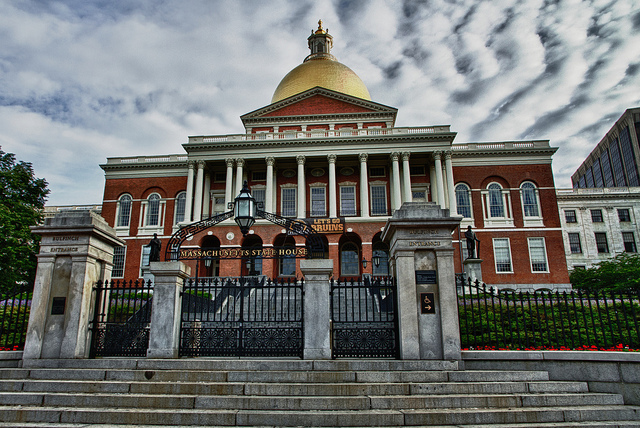
Last week, the majority of Massachusetts state legislators voted in favor of a constitutional amendment to enact a “millionaire’s tax.” The organization, Raise Up, collected the necessary signatures needed in order to bring the millionaire’s tax measure to the legislature. This proposal would apply a 4.0 percent surtax on income above $1 million, which would be levied on top of the Bay State’s 5.1 percent flat income tax. The good news is, despite legislative action last week, enactment of such a tax hike is far from imminent. The Boston Globe’s Evan Horowitz explains:
“For one thing, backers need something more than a new law; they need a constitutional amendment — because at present the state constitution doesn’t allow for differential tax rates.”
An 80 percent tax surge would hit small businesses especially hard, as the majority of small businesses file under the individual income tax system. The IRS accounts that more than 3,000 small businesses in Massachusetts report incomes over $1 million. The proposed millionaire’s tax would severely burden small business and stymie future economic growth for the Bay State.
The Globe’s Horowitz, explains how this matter would not be resolved until 2018 at the earliest:
“Amending the state constitution is a multi-step process. First, a quarter of legislators have to approve the amendment, which is what’s happening Wednesday. Then, in the 2017-2018 legislative session, they have to approve it again. Only then can it go to voters in the form of a ballot initiative.
This lengthy process has a potentially worrisome correlate. If it turns out there’s an error or problem with the amendment — or merely some ambiguity requiring clarification — addressing it could require another four-year process of constitutional re-amendment.”
Support of only 50 of the 200 state legislators were needed to advance the constitutional amendment. There was more than enough votes to move forward with the amendment, with votes totaling 102 to 50 in the House and 33 to 7 in the Senate.
Massachusetts voters have smartly rejected calls for a progressive income tax five times over the last five and a half decades. Increased reliance on upper income households makes state revenues more volatile, as California, New York, New Jersey, and Connecticut have first-hand experienced. The millionaire’s tax proposed in Massachusetts will make state revenue collections less stable, budgeting more difficult, and will make the commonwealth less competitive with other states around the country, many of which –such as Texas, Florida, North Carolina, and Tennessee—have been reducing and phasing out income taxes.

